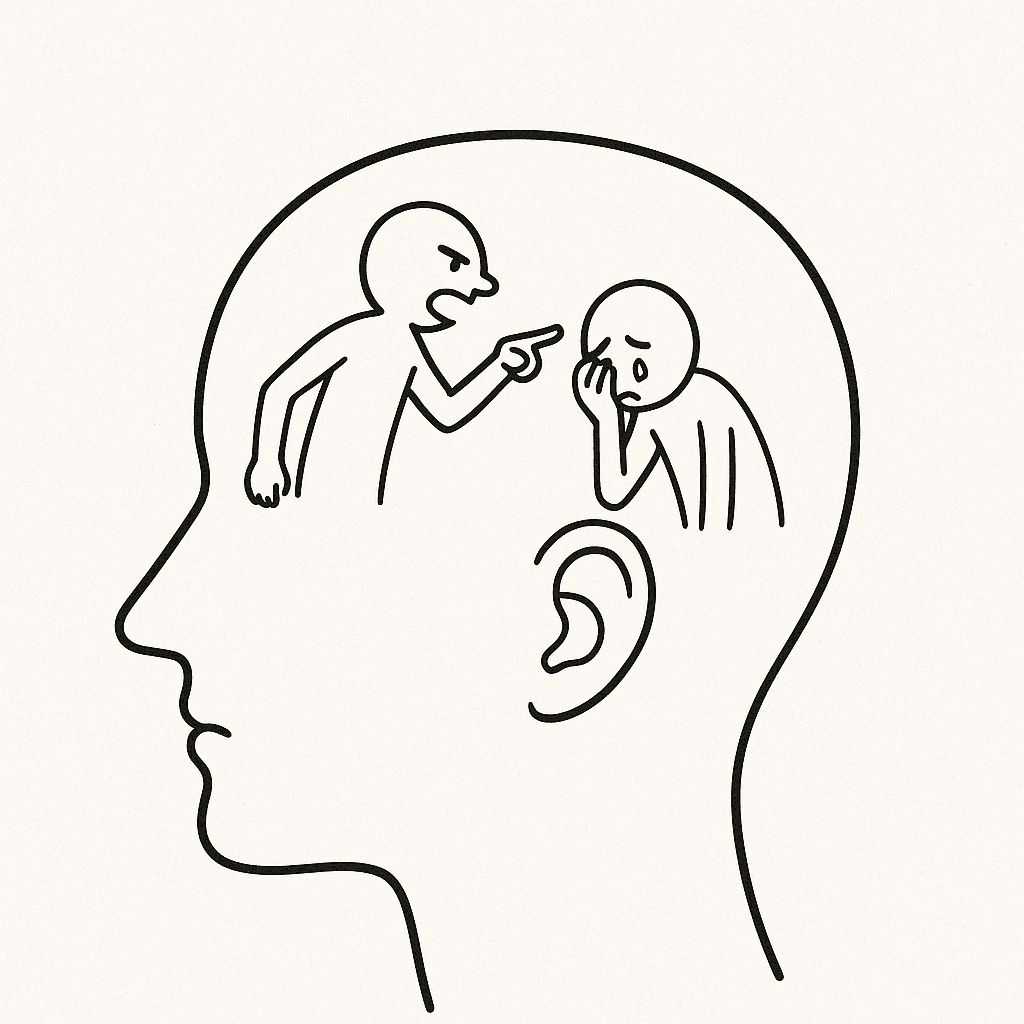Perfectionism is a relentless taskmaster. It whispers that nothing you do is good enough, convincing you that self-criticism is the only way to achieve success. While striving for excellence can be admirable, when it’s driven by fear and shame, it can lead to exhaustion, anxiety, and burnout.
However, research has shown that self-compassion — the practice of treating yourself with kindness, understanding, and patience — offers a healthier and more effective way forward. Dr. Kristen Neff’s foundational work on self-compassion and Dr. David Burns’ expertise in cognitive behavioral therapy (CBT) provide powerful tools to challenge the inner critic and break free from the grip of perfectionism.
In this article, we’ll explore how self-compassion fosters resilience, introduce common cognitive distortions associated with perfectionism, and offer four clinically backed exercises to help you soften self-criticism and embrace self-kindness.
Understanding Perfectionism and Self-Criticism
Perfectionists tend to hold themselves to impossibly high standards and fear the consequences of falling short. This fear often results in chronic self-judgment. A study published in Behaviour Research and Therapy (Shahar et al., 2015) found that self-criticism is a leading predictor of anxiety and depression. Conversely, self-compassion has been linked to greater emotional resilience and improved mental health.
The Cognitive Distortions of Perfectionism
Cognitive distortions are habitual, irrational thought patterns that negatively influence how we perceive ourselves and our experiences. Perfectionism is often fueled by these distortions. Recognizing them is the first step toward challenging and reframing self-critical thoughts. Here are the most common distortions:
- All-or-Nothing Thinking (Black-and-White Thinking) — Viewing situations in extremes. If it’s not perfect, it’s a failure.
- “I made one mistake at work. I’m completely incompetent.”
- Overgeneralization — Drawing broad, negative conclusions from a single event.
- “Because I struggled with this project, I’ll never succeed in my career.”
- Mental Filtering — Focusing exclusively on the negative and ignoring any positives.
- “My presentation went well, but I forgot one point, so it was a disaster.”
- Discounting the Positive — Dismissing compliments, successes, or achievements as insignificant.
- “Anyone could have done what I did — it wasn’t special.”
- Catastrophizing — Assuming the worst-case scenario will occur.
- “If I don’t meet this deadline, I’ll lose my job.”
- Magnification and Minimization — Exaggerating mistakes while minimizing successes.
- “My minor error ruined everything, but my accomplishments don’t matter.”
- Emotional Reasoning — Believing something is true simply because you feel it strongly.
- “I feel like a failure, so I must be one.”
- Personalization — Blaming yourself for situations beyond your control.
- “My partner is upset, so I must have caused it.”
- Labeling and Mislabeling — Defining yourself by mistakes rather than viewing them as isolated events.
- “I missed a deadline. I’m lazy and irresponsible.”
- Should Statements — Holding yourself to rigid, unrealistic expectations.
- “I should always be productive. Relaxing is lazy.”
The Three Components of Self-Compassion
Dr. Neff (2003) identified three essential components of self-compassion that counteract self-criticism:
- Self-Kindness — Offering yourself patience and warmth instead of harsh judgment.
- Common Humanity — Recognizing that imperfection is a shared human experience.
- Mindfulness — Observing your thoughts and feelings without suppressing or exaggerating them.
These principles can help soften the harsh inner critic, fostering resilience and self-acceptance.
Four Evidence-Based Exercises to Cultivate Self-Compassion
The following exercises draw from self-compassion research and cognitive behavioral therapy principles. Each is designed to help you identify cognitive distortions, reframe self-critical thoughts, and build a more compassionate internal dialogue.
1. The Self-Compassionate Reframe
Purpose: Challenge perfectionistic thoughts by recognizing distortions and responding with self-kindness.
Instructions:
- Step 1: Write down a recent self-critical thought.
- “I failed that presentation. I’m terrible at my job.”
- Step 2: Identify the distortions present. Are you using All-or-Nothing Thinking, Catastrophizing, or Labeling?
- Step 3: Ask yourself:
- What evidence supports this thought?
- What evidence contradicts it?
- How would I respond if a friend said this about themselves?
- Step 4: Create a self-compassionate reframe:
- “It was a difficult presentation, but I’m learning and growing. One experience doesn’t define my abilities.”
Evidence:
Studies in Cognitive Therapy and Research (Diedrich et al., 2014) show that self-compassionate reframing reduces self-criticism and depressive symptoms.
2. The Self-Compassion Break
Purpose: Offer yourself immediate support during moments of self-judgment.
Instructions:
- Step 1: Pause and acknowledge your feelings: “This is a moment of pain.”
- Step 2: Recognize common humanity: “Everyone feels this way sometimes. I’m not alone in my struggle.”
- Step 3: Offer kindness to yourself: “May I be kind to myself in this moment.”
Evidence:
In a study published in Mindfulness (Neff & Germer, 2013), participants who practiced self-compassion breaks reported reduced anxiety and increased emotional resilience.
3. The Letter to Your Inner Critic
Purpose: Develop a balanced perspective by responding to your inner critic with compassion.
Instructions:
- Step 1: Write a letter from your inner critic, expressing its harshest judgments.
- Step 2: Write a compassionate response. Imagine how a caring mentor or friend might speak to you. Take your time with this!
- “I know you’re afraid of failure, but growth comes from mistakes. You’re still worthy and capable.”
- Step 3: Reflect on how this exercise shifts your emotional state.
Evidence:
Research in Self and Identity (Shahar et al., 2012) found that self-compassionate letter writing led to significant reductions in self-criticism.
4. The Compassionate Visualization
Purpose: Strengthen your inner compassionate voice through visualization.
Instructions:
- Step 1: Close your eyes and imagine a compassionate figure, whether real or imagined.
- Step 2: Visualize this figure offering you warmth, understanding, and encouragement.
- Step 3: Allow yourself to receive this compassion fully.
- Step 4: Pretend to be this individual in your daily life until it holds.
Evidence:
Studies in Clinical Psychology Review (Rockliff et al., 2008) show that compassionate imagery reduces physiological stress responses and increases feelings of safety.
Moving Forward with Self-Compassion
By integrating these exercises into your daily life, you can gradually shift your inner dialogue from one of self-criticism to self-compassion. As you challenge cognitive distortions and practice kindness toward yourself, you’ll cultivate greater resilience and emotional well-being.
If you find that self-criticism remains overwhelming, working with a therapist trained in Cognitive Behavioral Therapy (CBT), Acceptance and Commitment Therapy (ACT), or Eye Movement Desensitization and Reprocessing (EMDR) can offer additional support.
At Beyond the Couch Counseling in Grand Rapids, Michigan, we specialize in helping clients navigate perfectionism, anxiety, and self-criticism. Contact us today to explore how therapy can help you build a compassionate relationship with yourself.
You deserve the same kindness you so readily offer others.







